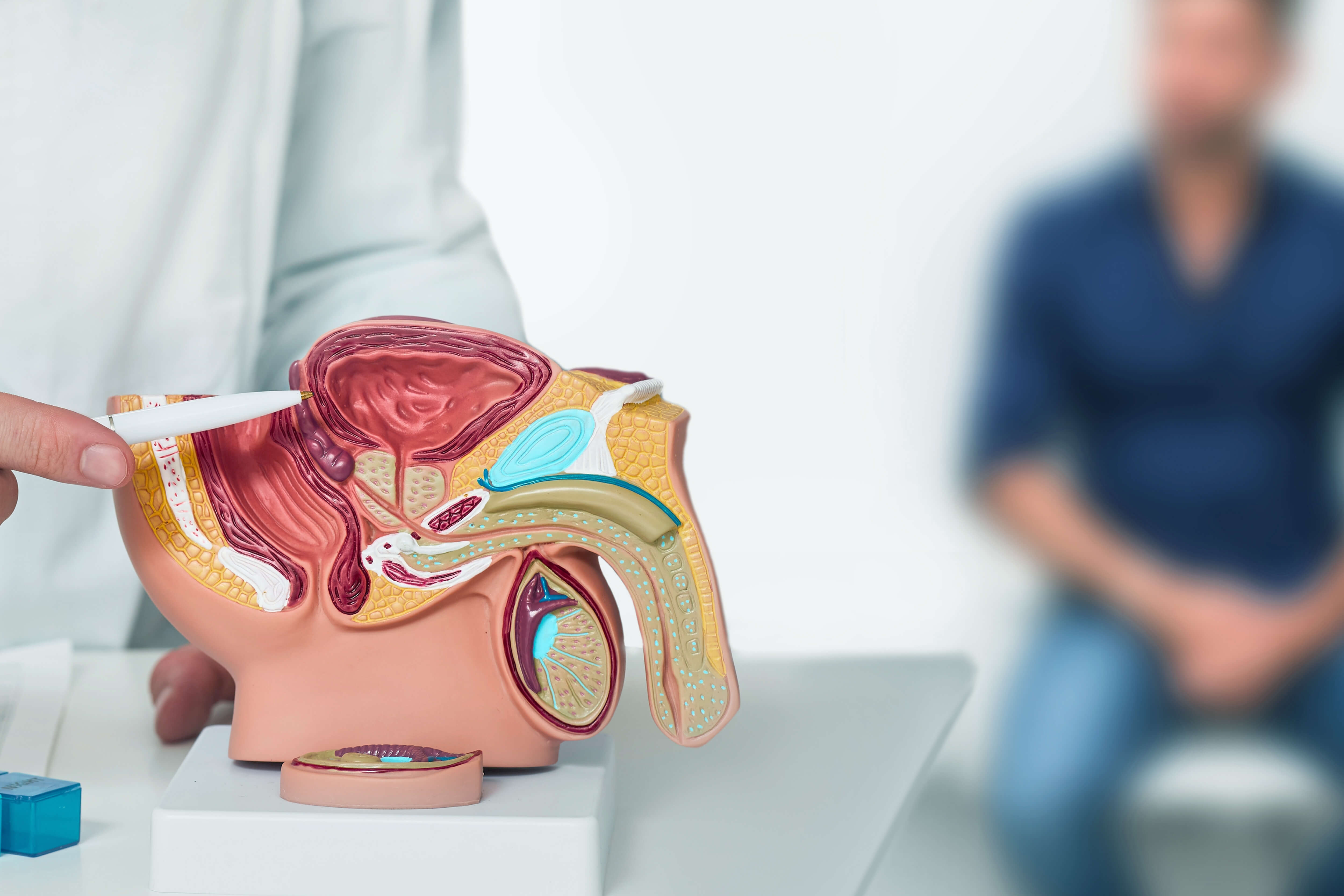Symptom of prostate cancer
Prostate cancer is a prevalent type of cancer that affects men and is the fourth most common cancer worldwide. It is the second most commonly occurring cancer among men. Recent statistics show that in 2020, symptom of prostate cancer there were more than 1.4 million new cases of prostate cancer globally.
The disease starts in the male reproductive system's small, walnut-shaped prostate gland. The prostate gland produces seminal fluid, which nourishes and transports sperm. When prostate cells grow and divide uncontrollably, they can form a tumour, spreading to other body parts.
At the Apollo Proton Cancer Center, we understand the importance of early detection and treatment in improving outcomes for prostate cancer patients.
What is the earliest symptom of prostate cancer?
Prostate cancer usually grows slowly and can be detected early through routine screening tests. However, in some cases, prostate cancer can be aggressive and spread quickly, leading to more advanced stages of the disease.
One of the challenges of prostate cancer is that it may not cause any symptoms in its early stages. As a result, many men may not be aware that they have prostate cancer until it has reached an advanced stage.
While the exact cause of prostate cancer is unknown, Doctors have identified several factors that can increase a man's risk of developing this cancer.
Let us discuss the factors which put a person at high risk for developing responsible for prostate cancer.
Age: Age is one of the primary risk factors for prostate cancer. Men aged 50 and above are at a higher risk of developing this cancer than younger men. The risk of prostate cancer increases with age, and more than 60% of prostate cancer cases are diagnosed in men aged 65 and above.
Family history: A family history of prostate cancer is another significant risk factor for this disease. Men with a father, brother, or son with prostate cancer are twice as likely to develop this cancer than those without a family history. The risk increases if multiple family members have had prostate cancer.
Race and Ethnicity: Race and ethnicity also play a significant role in the development of prostate cancer. African American men have the highest incidence rate of prostate cancer worldwide, followed by Caribbean men. Asian men have the lowest incidence rate of prostate cancer.
Obesity: Obesity is another risk factor for prostate cancer. Studies have shown that men with a body mass index (BMI) of 30 or higher are at a higher risk of developing this cancer. Obesity can lead to hormonal changes in the body, which can contribute to the development of prostate cancer.
Diet: Diet also plays a role in the development of prostate cancer. A diet high in red meat and dairy products may increase the risk of prostate cancer, while a diet high in fruits and vegetables may lower the risk. Research has linked a diet low in selenium and vitamin E to an increased risk of prostate cancer.
Sexually transmitted infections: Certain sexually transmitted infections (STIs), such as chlamydia and gonorrhea, have been linked to an increased risk of prostate cancer. These infections can lead to inflammation in the prostate gland, which can contribute to cancer development. However, the association is less clear.
Exposure to environmental toxins: Certain environmental toxins, such as cadmium and asbestos, have also been linked to an increased risk of prostate cancer. These toxins can damage DNA and other cellular structures, leading to cancer development.
However, men should know some early warning signs of prostate cancer. These early symptoms include:
Trouble urinating
One of the earliest symptoms of prostate cancer is difficulty urinating. It may include a weak or interrupted urine flow, a feeling of incomplete bladder emptying, or the need to urinate more frequently, especially at night.
Decreased force in the stream of urine
Men with prostate cancer may also notice a decrease in the force of their urine stream. It may be due to a blockage caused by the growing tumour.
Blood in the urine
Another early symptom of prostate cancer is blood in the urine. It is known as hematuria and may appear as pink, red, or dark brown urine.
Blood in the semen
Men with prostate cancer may also notice blood in their semen. It is known as hematospermia and may appear as a pink or red tint in the semen.
Bone pain
Prostate cancer spreading to the bones may cause pain, especially in the hips, spine, and ribs. This pain may be dull, aching, or sharp and may worsen at night.
Losing weight without trying
Prostate cancer that has spread to other body parts may cause unintended weight loss, even if the person is eating normally.
Erectile dysfunction
Men with prostate cancer may also experience difficulty achieving or maintaining an erection. It is because the growing tumour can interfere with the nerves and blood vessels that are needed for an erection.
It is important to note that other conditions, such as an enlarged prostate or a urinary tract infection, can also cause these symptoms. However, if you experience any of these symptoms, seeing a healthcare provider for an evaluation is essential.
Here are some of the most common treatment options for prostate cancer:
Radiation therapy: Radiation therapy uses high-energy X-rays or other types of radiation to kill cancer cells. It treats localized prostate cancer and cancer that has spread to other body parts. Different types of radiation therapy exist, including external beam radiation and brachytherapy.
Hormone therapy: Prostate cancer is often driven by the male hormone testosterone. Hormone therapy involves blocking the production or action of testosterone in the body to slow down or stop the growth of cancer cells. It can be used alone or in combination with other treatments.
Chemotherapy: Chemotherapy involves using drugs to kill cancer cells. It is usually used when prostate cancer spreads to other body parts and no longer responds to hormone therapy.
Conclusion of symptom of prostate cancer
If you experience any of the above symptoms or have concerns about prostate cancer, do not hesitate to contact Apollo Proton Cancer Center. Our dedicated team of professionals is committed to providing our patients with the best possible care and support.

Copyright © 2023 Apollo Proton Cancer Centre. All Rights Reserved





